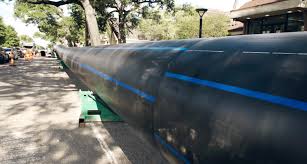Jul . 26, 2024 20:12 Back to list
Different Applications and Services of HDPE Pipes for Various Industries and Projects
Types of HDPE Pipe Services
High-Density Polyethylene (HDPE) pipes have become increasingly popular in various industries due to their unique properties, such as durability, flexibility, and resistance to corrosion. These pipes are commonly used for a wide range of applications, including water distribution, sewage, and industrial piping systems. In this article, we will explore the different types of HDPE pipe services available and the benefits they bring to various sectors.
1. Water Supply Systems
One of the most common uses of HDPE pipes is in water supply systems. These pipes are ideal for both potable water and irrigation because they do not leach harmful chemicals into the water. HDPE pipes are often used for municipal water distribution systems due to their strength and long lifespan, which reduces the need for frequent replacements. The installation services for water supply systems usually require specialized equipment and trained personnel to ensure the integrity of the pipeline.
2. Sewage and Wastewater Management
HDPE pipes are extensively utilized in sewage and wastewater management systems. Their resistance to chemicals and ability to withstand varying pressures make them suitable for transporting sewage and other waste materials. Services related to the installation of HDPE pipes in sewage systems include trenchless technology, which minimizes excavation and disruption to existing infrastructure. The seamless joints of HDPE pipes also enhance flow rates and reduce the risk of leaks.
3. Industrial Applications
type of hdpe pipe service

In industrial settings, HDPE pipes are used for transporting raw materials, chemicals, and waste products. Their resistance to corrosion and high temperatures makes them an excellent choice for industries such as mining, oil and gas, and manufacturing. HDPE pipe services in this context often involve custom fabrication, fitting, and installation to meet specific operational requirements. Moreover, the lightweight nature of HDPE facilitates easier handling and installation, which is a significant advantage in industrial projects.
4. Telecommunication and Electrical Conduits
Another innovative application of HDPE pipes is in the telecommunications and electrical sectors. HDPE conduits protect wires and fiber optic cables from environmental factors and physical damage. Installation services for HDPE conduits often utilize advanced techniques such as horizontal directional drilling (HDD), allowing for minimal disturbance to the surrounding areas. This method is particularly beneficial in urban settings where traditional excavation would disrupt traffic and utility services.
5. Mining and Dewatering Applications
In mining operations, HDPE pipes are frequently employed for dewatering purposes. They are effective in draining excess water from mines to maintain a safe working environment. The installation of HDPE pipes for these applications requires specialized knowledge due to the challenging conditions often present in mining sites. Additionally, HDPE's resilience to abrasion ensures that the pipes can withstand the gritty conditions often encountered in mining operations.
Conclusion
The versatility of HDPE pipes makes them a fundamental choice across numerous sectors and applications. Their reliable performance, coupled with the variety of installation and service options available, makes them an intelligent investment for any project. Whether it’s for clean water supply, sewage management, industrial uses, telecommunications, or mining operations, HDPE pipe services play a crucial role in ensuring efficient and sustainable infrastructure development. As industries continue to evolve, the demand for reliable piping solutions like HDPE will undoubtedly grow, further establishing its role as a cornerstone of modern engineering.
-
HDPE Compression Fittings Durable & Reliable PP Compression Fittings Supplier
NewsJun.24,2025
-
High-Quality PVC Borehole Pipes - Durable Pipes from Leading PVC Manufacturer
NewsJun.10,2025
-
High-Quality PVC Borehole Pipes Types of Pipes by Leading PVC Manufacturer
NewsJun.10,2025
-
Durable Screen Pipes & HDPE-PVC Connectors Expert Solutions
NewsJun.10,2025
-
Premium HDPE Conduit Pipes Durable & Corrosion-Resistant
NewsJun.10,2025
-
Premium HDPE Elbows Durable Corrosion-Resistant Piping Solutions
NewsJun.09,2025

